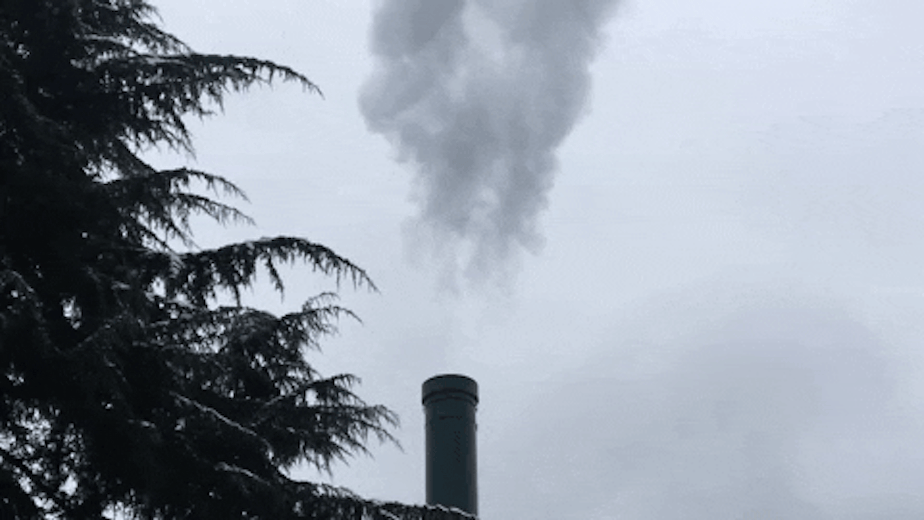Seattle bans natural gas in new buildings

The city of Seattle has banned most uses of fossil fuels in new buildings.
The ban on appliances like gas furnaces and gas water heaters in new construction is part of a revised energy code that applies to commercial buildings and to multifamily housing at least four stories tall.
The code proposed by Mayor Jenny Durkan passed Seattle City Council 9-0 on Monday.
Space heating in new construction must be all-electric by June 1, while new water heaters must use only electricity by the end of the year.
Gas cooking is still allowed under the city’s new energy code.
“Public health can’t wait,” physician Annemarie Dooley of Seattle testified before the City Council. “Every day we delay means more illness and lives lost from air pollution and climate-related heat stress.”
Sponsored
The Washington State Legislature is considering a similar but much slower action on natural gas in commercial buildings, with a ban to take effect in nine years.
Natural gas is mostly methane, which is exceptionally powerful at trapping heat in the atmosphere.
Seattle’s new energy code also requires large buildings to have more energy-efficient windows, insulation, lighting, and ventilation systems than the state requires.
State law prohibits Washington cities from imposing tighter energy codes on residential buildings less than four stories tall.
Energy use in buildings is the fastest-growing source of climate pollution in Washington state. Space heating and water heating are the biggest energy hogs in a typical building.
Sponsored
According to Seattle’s latest inventory of greenhouse gas emissions, air travel was the city’s fastest-growing source of carbon pollution in 2018, followed by buildings.
Activists, builders and others spoke in favor of Seattle’s fast-track move toward all-electric buildings.
“Our building emissions have continued to rise even as the city tries to make investments in mitigating climate change,” said activist Deepa Sivarajan with the nonprofit Climate Solutions.
Only fireplace seller Steve Tate with Fireside Home Solutions spoke against the measure.
“The desire to sit by a fire isn’t going to go away,” he said.
Sponsored
Oakland, San Francisco, San Jose, and other cities in California have similar bans on natural gas use in new construction.
Puget Sound Energy and other gas utilities in the Northwest launched a $1 million “Partners for Energy Progress” lobbying campaign in 2020 to defend the industry against similar proposals, as the Seattle Times first reported.
In 2019, Puget Sound Energy, the state’s largest utility with 1 million electricity customers and 850,000 natural gas customers, helped block a Seattle City Council proposal to ban natural gas use in new buildings.
The Bellevue-based utility has 150,000 gas customers in Seattle, while electricity in the city is provided by city-owned Seattle City Light.
Puget Sound Energy did not testify Monday on Seattle’s energy code.
Sponsored
“As an energy delivery company, PSE is fuel-neutral,” spokesperson Andrew Padula said in an email when asked for a reaction to the new code.
He said Puget Sound Energy supports the development of biogas and hydrogen fuel, both of which could be delivered through existing gas pipelines.
On Jan. 21, Puget Sound Energy announced an “aspirational goal” to reduce net emissions from its natural gas sales 30% by 2030 and eliminate them by 2045.
The next day, Puget Sound Energy lobbyist Janet Kelly testified in Olympia against the proposed statewide ban in 2030 on installing gas heat in new buildings.
“Electrification is not the only way to accomplish greenhouse gas reductions,” she told the House Environment & Energy Committee.
Sponsored
Capturing methane gas from biological sources like manure, sewage and landfill gas could replace a small share – between 3-5% – of natural gas use in Washington, according to a 2019 study from Washington State University and the Washington Department of Commerce.
Almost all of Washington’s natural gas comes from hydraulic fracturing, or "fracking," operations in western Canada.
Every month, on average, Washington state imports about enough natural gas from Canada to fill Lake Washington.




